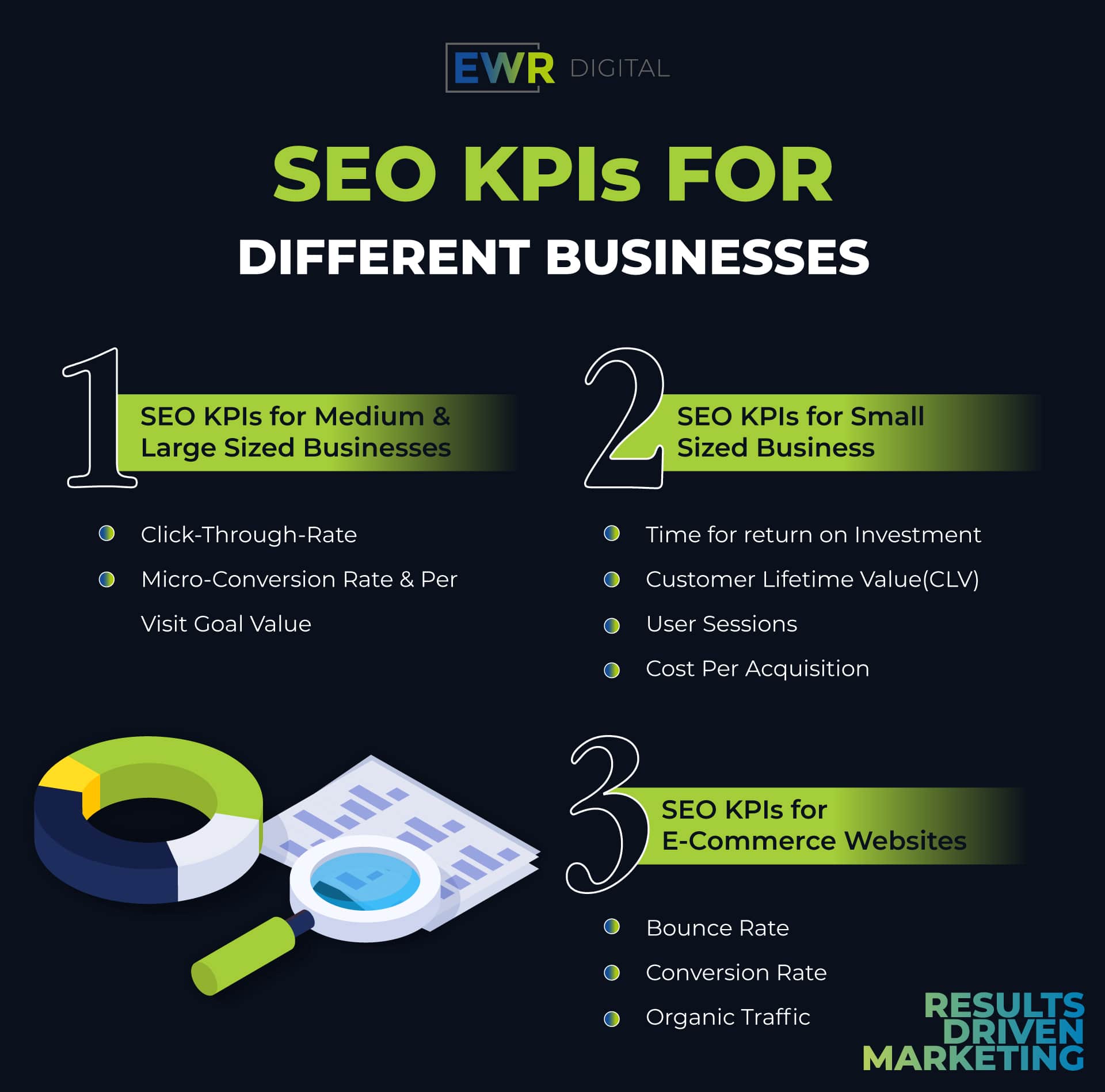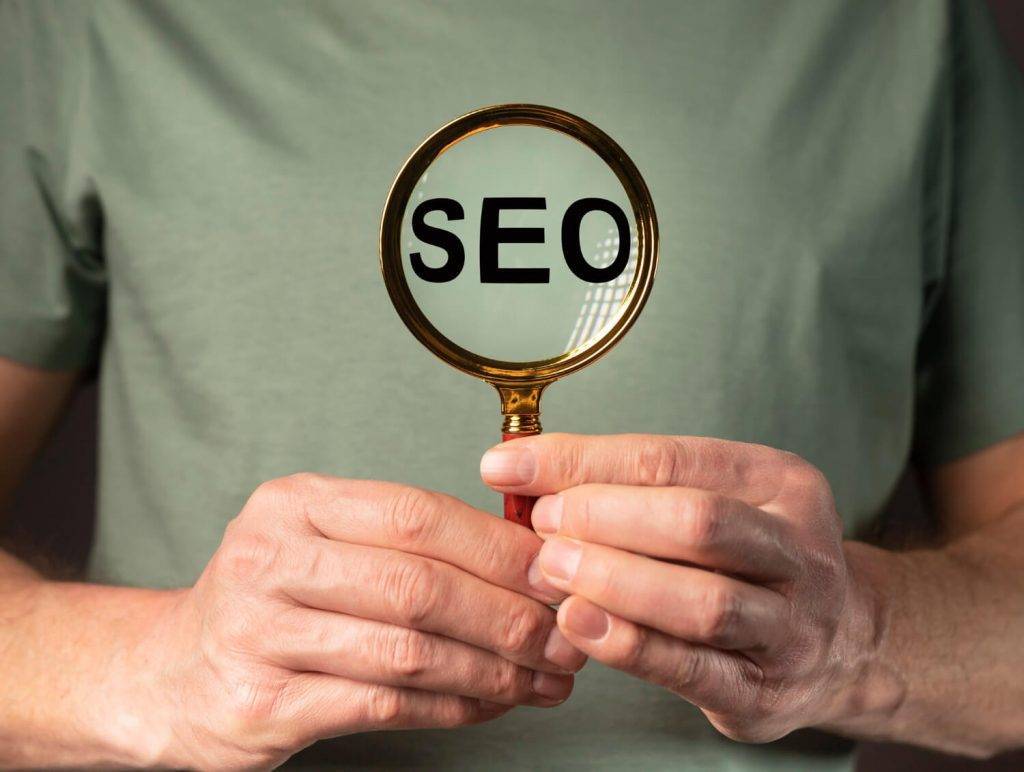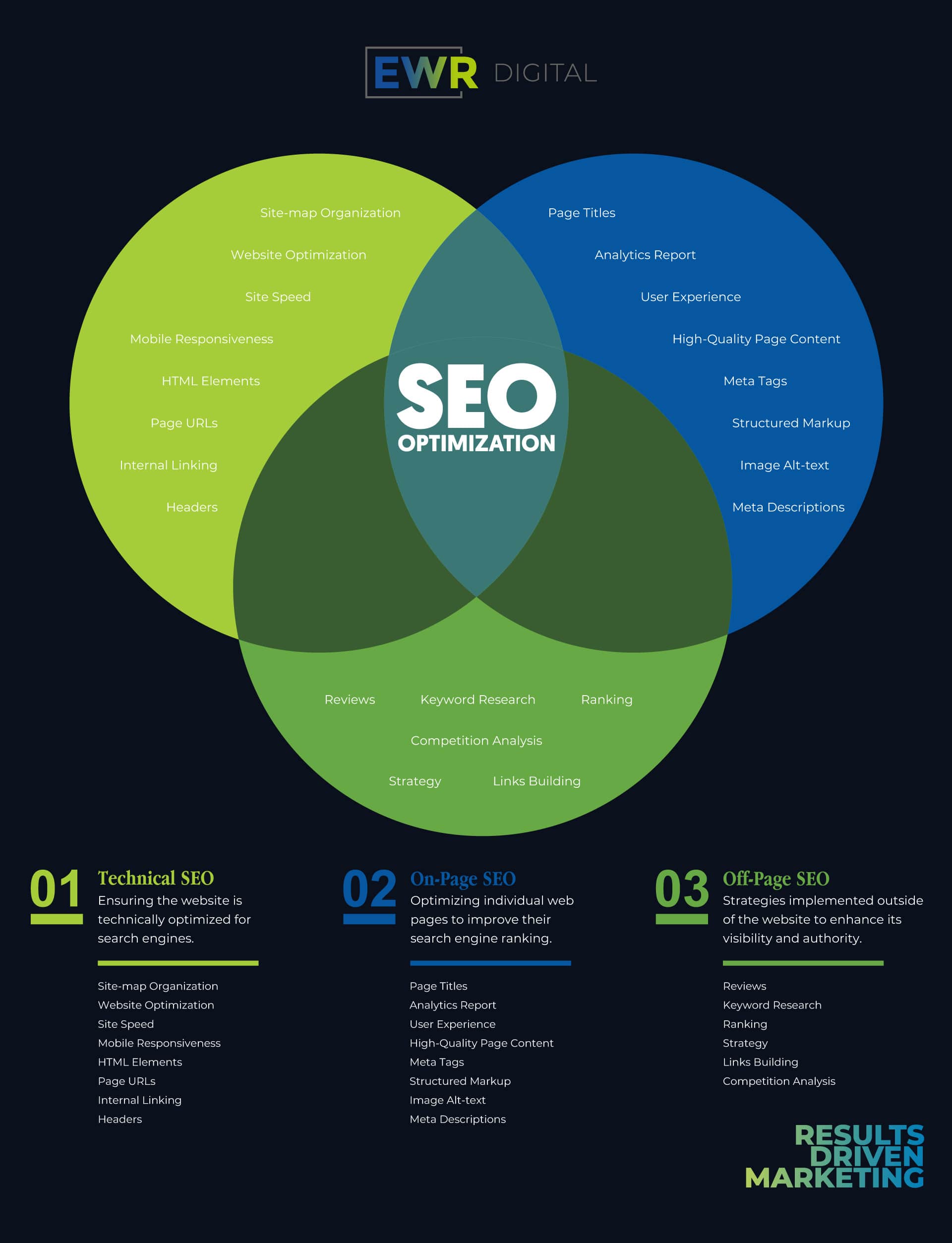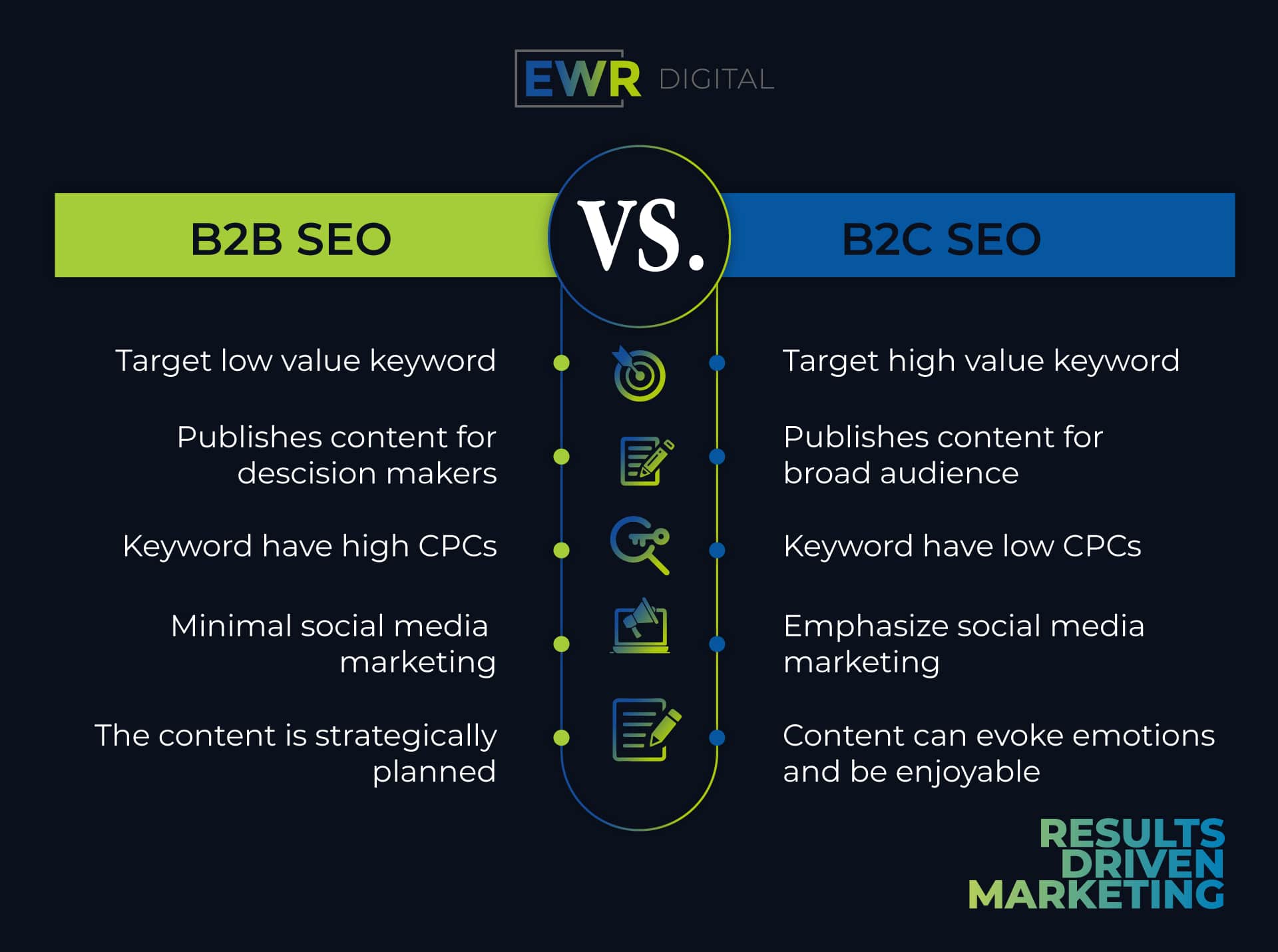Not every business owner understands that different types of SEO strategies a company, agency, or SEO consultant can implement for different sizes of websites, but the really secert is you have to do all of them to rank. Depending on size, you may need an enterprise or small business SEO strategy. Both have similar elements but also some drastically different aspects and different hurdles.
One thing’s for sure—understanding how each works and knowing the differences between them can help you achieve optimal results.
Before we continue, remember that enterprise and small business SEO does not always directly correlate with the size of the business (think Coca-Cola versus your local sole-proprietor coffee shop). Rather, it correlates with the website’s size, say one with 1000s of pages versus 100 pages. Some experts consider enterprise SEO only for enterprise brands. Others believe in enterprise SEO for businesses that have larger websites. We’ll focus on enterprise SEO being for those with larger websites of 250 pages or more. I think there is alot of confusion out there are the differences and I will do by best to explain them but we also have a great e-book on this.
SEO Backgrounder

SEO is all about driving quality and relevant traffic to your website through organic search results (read – not paid to advertise). There are approximately 2 trillion searches conducted on Google every year. You want to make sure that your website ranks on the first page for search queries relevant to your website— and hopefully the top five positions because they receive 70.4 percent of clicks.
SEO involves multiple tactics that work together, including these basic:
- Creating relevant and reputable content that adheres to Google E-A-T guidelines (link to E-A-T blog).
- Creating unique content consistently.
- Targeting optimal keywords per page.
- Optimizing title tags and meta descriptions.
- Using a proper internal linking structure.
- Having a technical sound platform (fast speeds, mobile-friendly, clean architecture/site hierarchy).
- Acquiring links from other reputable and relevant websites.
Organic searches contribute to about 50% of website traffic, making SEO an essential tactic for effectively marketing a business or franchise. You can use a specific type of SEO (enterprise or SMB) depending on your needs.

Small Business SEO vs Enterprise SEO
The primary difference between enterprise SEO and small business SEO lies in the scale and complexity of the SEO efforts involved.
- Scale: Enterprise SEO deals with large-scale websites that often have numerous pages, extensive product/service offerings, and multiple locations. Small business SEO, on the other hand, focuses on optimizing smaller websites with fewer pages and a narrower scope of products or services.
- Resources: Enterprises typically have larger budgets and dedicated SEO teams or agencies, allowing for more extensive SEO campaigns. Small businesses often have limited resources and may handle SEO in-house or with the assistance of a small team or individual.
- Competition: Enterprises usually face higher levels of competition in the search engine results due to the larger number of players in their industry. Small businesses may have a more localized or niche focus, resulting in less intense competition.
- Technical Infrastructure: Enterprise websites tend to have more complex technical infrastructures, requiring advanced technical SEO strategies. Small business websites are typically simpler in structure and may not require the same level of technical optimization.
- Geographic Reach: Enterprises often have a broader geographic reach, with multiple locations and the need to optimize for local SEO across various regions. Small businesses generally have a more localized customer base and may focus on optimizing for a specific local area.
- Content Strategy: Enterprise SEO often involves managing and optimizing a significant amount of content, requiring a well-defined content strategy and governance process. Small businesses may have a smaller content volume and can be more flexible in their content creation and optimization efforts.
- Reporting and Analytics: Enterprises tend to have more robust analytics tools and resources to track and analyze SEO performance on a granular level. Small businesses may rely on simpler reporting methods or free analytics tools.
- Cost: Enterprise SEO typically involves higher costs due to the larger scale of operations, more extensive websites, and the need for specialized tools and resources. Enterprises often have larger budgets allocated for SEO, allowing them to invest in advanced SEO software, hire dedicated SEO teams or agencies, and execute comprehensive SEO strategies. In contrast, small businesses generally have tighter budgets, leading to more limited resources allocated for SEO. They may need to prioritize their spending and focus on cost-effective strategies that provide the most impact within their budget constraints.
While the fundamental principles of SEO apply to both enterprise and small business SEO, the scale, resources, competition, and technical considerations differ, leading to variations in the strategies and tactics employed.
Enterprise SEO
Enterprise SEO is designed for businesses that have lots of content. Some elements include:
- You have a large business or organization that needs to provide loads of content
- Your website has a thousand pages or more
- You’re offering thousands of products or hundreds of services
SMB SEO
Small business SEO is designed for businesses with smaller amounts of content. Some elements include:
- You have a small business or local organization
- Your website has less than a thousand pages
- You’re offering a specific, limited amount of products or services
How Enterprise and Small Business SEO Work
Let’s discuss the similarities between Enterprise SEO and Small Business SEO.
In regards to search engine optimization methods, enterprise and small business SEO share certain similarities. Both processes involve the following:
- Keyword Optimization: Both enterprises and small businesses want their websites to appear at the top of SERPs. This is done by incorporating keywords associated with the company that is commonly searched. A business will use branded and non-branded keywords.
- Branded Keywords: These are specifically associated with your company (Coca-Cola, Volkswagen). They are generally used by consumers who are familiar with your brand and are specifically looking for you.
- Non-Branded Keywords: These are more general keywords that apply to your business category but are not specifically geared to your company.
- Technically Sound: Whether your website has ten pages or a thousand, users must experience zero technical difficulties. This can mean dead (404) pages, broken internal links, slow speeds, lack of mobile-friendliness, and difficult navigation, to name a few.
- Monitoring and Auditing: Knowing how your SEO tactics and updates have affected your website traffic is vital for success. By carefully monitoring progress and auditing website performance regularly, businesses can determine elements like which keywords are successful and may need to be altered or when a 404 error surfaces.
- Branding: Both enterprises and small businesses want to be recognizable. Having well-designed logos and pages can help your company stand out as a particular brand, consequently helping with customer retention.
Let’s get a bit more granular regarding one of the most important elements of any SEO campaign, keywords. Most Enterprise and small business SEO focus on long-tail keywords rather than short-tail keywords. Long-tail keywords are longer and more specific than general keywords (Black Audi A7 with Premier Package vs. Audi A7). They typically have a lower search volume, say 260 monthly versus 40,000 monthly.
These keywords are less commonly searched but are more likely to stand out among tons of content and are easier to rank than your competitors. These keywords also aim to get products or services sold, and they are generally targeted toward people looking to buy a specific item or service. A keyword aimed at a buyer is known as a transactional keyword.
Example: A mattress business using “gel memory foam mattress topper,” which has a monthly search volume of 3600 (as of January 2021, SEMrush), rather than “mattress topper,” which has a search volume of 136,000.
Again, a mattress business can rank much easier for the longer-tail versus the shorter-tail keyword.
Due to the brand authority of most enterprise clients, they can also optimize for short-tail keywords. These are broader terms with a length of 1-3 words and a much higher search volume. They are commonly searched but can also generate lots of competing websites.
Example: A real estate agency using “real estate” over “Houston Texas real estate”
How about the main differences between enterprise SEO and small business SEO? Following are the major differences that provide difficulties for strong enterprise SEO.
You can find more case studies here.
Location

Enterprise SEO generally does not have geographical restrictions. It aims to access both local markets and wide-scale markets. This becomes a problem, especially for enterprise companies with multiple locations (think Burger King or Olive Garden). The more locations, the more focused a business must be on local search results.
Small business SEO is typically more localized. Factors such as the address or general location of the person searching are taken into consideration.
Multiple Websites or Sub-Domains
Due to offering more products or services, larger companies may need to build various sub-domains or multiple websites for different product/service lines. This presents many issues with SEO strategies because each website and sub-domain will require its strategy to be relevant in the search results.
SMBs typically have a single or only a handful of products/services, making the use of multiple websites or sub-domains relevant.
Navigation
People should be able to navigate through your website easily. For instance, if a person ends up on one of 1000 product pages, they should easily access other relevant pages, such as broader category or pages such as a how-to guide to use that product. Making a website easily navigable is easier for small businesses with fewer pages. Enterprises may encounter more technical difficulties.
Voice and Visual Searches
With 1000s of pages of products or services, optimizing an enterprise website also means sharply focusing on voice and visual searches. Voice searches are conducted audibly, while visual searches are performed using images (such as through Google Lens or Google Images). These searches will help you reach a wider audience and are more helpful to enterprises that strive to achieve a larger range of people.
SEO Services
If these different SEO techniques sound complex, that’s because they are—especially for enterprise SEO. We’re here to help with both enterprise and small business SEO strategies.
The ultimate goal? You’ll rank for relevant keywords and search queries that will attract qualified traffic to your website (meaning traffic that converts from reader to customer and result in higher ROI).
Enterprise SEO is more complex and may require some extra digital marketing services. EWR Digital offers the following digital marketing services to support SEO for increased online marketing exposure:
- Website Design and Development: Making your website look good is key to increasing traffic. We have expert graphic designers and web developers on staff that understand SEO.
- Videography: Our video production team can assist with creating video content, from how-tos to advertising to help you better explain things to Google and your users.
- Branding: Our team can help you develop a recognizable and reputable brand to help retain customers and tell your story.
- PPC: Besides being experts in organic SEO, we’re also experts in paid advertising, assisting clients with millions of dollars in advertising spend monthly.
You can spend time developing great products and services, but without converting website traffic, revenue will be tough to achieve. This is especially difficult for enterprises, which deal with extra factors that small businesses generally don’t have. Finding an SEO service provider to help with your marketing needs can make a huge difference in the success of your business. I would also say find one that you can trust!


